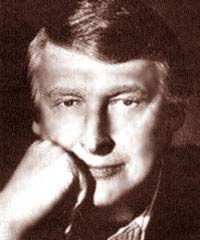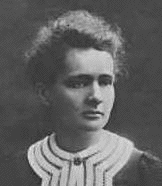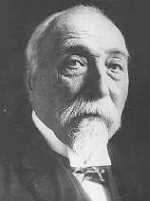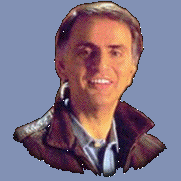This Week in Freethought History (November 3-9)
Here’s your week in Freethought History. This is more than just a calendar of events or mini-biographies – it’s a reminder that, no matter how isolated and alone we may feel at times, we as freethinkers are neither unique nor alone in the world.
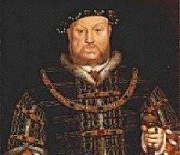 Last Sunday, November 3, but in 1534, England’s Parliament passed the first Act of Supremacy, thus making King Henry VIII head of the English church. Under Henry’s urging, and in 276 words, Parliament gave to the head of state the role until then held by the Pope. That this was payback for Pope Clement VII’s refusal to allow Henry a divorce from Katherine of Aragon seems obvious, but it is wise to be wary of single motivations. He was at least outwardly pious, as any savvy leader must be – and as Machiavelli advised a generation earlier in The Prince – but Henry had a more objective eye on the corruption of Rome and in the monasteries and parishes of England. This corruption included simony (trading in “sacred” things), nepotism (favoritism to relatives) and sexual indiscretions. While he was cleaning up the corrupt monasteries, Henry was also cleaning them out. But before criticizing Henry for appropriating the wealth of the Catholic Church to finance his pleasures and his foreign adventures, it is useful to ask just why the monasteries were so wealthy in portable property and lands in the first place. The Church certainly wasn’t relieving poverty or educating the populace to any great extent. It’s all right to say that God’s work doesn’t come cheap, but just how much does a priest in velvet vestments, living in a mansion, care about a peasant in rags, living in a hovel? King Henry making himself head of both Church and State, had at least one unintended consequence: especially in comparison to the US, England has been, and is today, one of the least religious countries in the world!
Last Sunday, November 3, but in 1534, England’s Parliament passed the first Act of Supremacy, thus making King Henry VIII head of the English church. Under Henry’s urging, and in 276 words, Parliament gave to the head of state the role until then held by the Pope. That this was payback for Pope Clement VII’s refusal to allow Henry a divorce from Katherine of Aragon seems obvious, but it is wise to be wary of single motivations. He was at least outwardly pious, as any savvy leader must be – and as Machiavelli advised a generation earlier in The Prince – but Henry had a more objective eye on the corruption of Rome and in the monasteries and parishes of England. This corruption included simony (trading in “sacred” things), nepotism (favoritism to relatives) and sexual indiscretions. While he was cleaning up the corrupt monasteries, Henry was also cleaning them out. But before criticizing Henry for appropriating the wealth of the Catholic Church to finance his pleasures and his foreign adventures, it is useful to ask just why the monasteries were so wealthy in portable property and lands in the first place. The Church certainly wasn’t relieving poverty or educating the populace to any great extent. It’s all right to say that God’s work doesn’t come cheap, but just how much does a priest in velvet vestments, living in a mansion, care about a peasant in rags, living in a hovel? King Henry making himself head of both Church and State, had at least one unintended consequence: especially in comparison to the US, England has been, and is today, one of the least religious countries in the world!
In 2007, the same year Oxygen TV voted her one of the “50 Funniest Women Alive,” Griffin rocked the entertainment world with her Emmy Award acceptance speech, in which she quipped, “A lot of people come up here and thank Jesus for this award. I want you to know that no one had less to do with this award than Jesus. He didn’t help me a bit…. So all I can say is suck it, Jesus, this award is my God now!” The speech drew predictable criticism from the Catholic League, causing the network to censor the remarks when the event was broadcast on the E! channel and to edit them from the official Emmy Awards broadcast the next day on Fox. “In America,” Griffin says, “they’ll pretty much shoot you for saying that you’re an atheist so I’m just trying to live another day. But the stigma of not being religious in this country is actually pretty frightening. It’s not like atheists start wars.”
Last Tuesday, November 5, but in 1885, the chief author of the 11-volume Story of Civilization, Will Durant was born. The son of devout French-Canadian parents, Will Durant was guided toward a Jesuit education in Jersey City by his mother, but his reading of science and philosophy prompted him to observe, “By the end of my sophomore year, I had discovered … that Christianity was only one of a hundred religions claiming special access to truth and salvation; … I could no longer think of becoming a priest.” After being excommunicated by the New Jersey bishop in 1913, Durant married a student, Ada Kaufman, who took the pen name Ariel, as his co-author on many works, for the length of their long marriage. Durant’s major works include his first success, The Story of Philosophy (1926), The Story of Civilization (1954-1975), for which he received a Pulitzer Prize, and The Lessons of History (1968). While not dismissive of religion generally — “Even the skeptical historian develops a humble respect for religion, since he sees it functioning, and seemingly indispensable, in every land and age,” he wrote — Durant remained a freethinker, saying, “The greatest question of our time is not communism vs. individualism, not Europe vs. America, not even East vs. West; it is whether men can bear to live without God.” Last Wednesday, November 6, but in 1931, American film director and screen writer Mike Nichols was born. In the 1950s, with partner Elaine May, Mike Nichols developed a clever, satirical, male-female comedy act that made it to Broadway before breaking up in 1961. Nichols won six Tony awards. His debut as a film director came with Who’s Afraid of Virginia Woolf? in 1966, starring Richard Burton and Elizabeth Taylor. The next year Nichols scored an Oscar for directing the Dustin Hoffman star vehicle The Graduate. For television, Nichols directed Wit (2001), based on the Pulitzer-prize winning play about a woman with terminal ovarian cancer, and Angels in America (2003), the critically acclaimed and much-awarded miniseries about AIDS. No stranger to satire on God and religion, in an interview on NPR’s “Fresh Air” program Nichols admitted that what happens beyond death doesn’t concern him: “I’ve just always assumed that everything just sort-of stops. You know, I’m not one of the people who imagines heaven and hell and so forth. … I don’t go on to ‘afterward.’” Last Thursday, November 7, but in 1867, French chemist and nuclear physicist Marie Curie was born. She was brought up a Catholic in Poland by her mother, but her father was a freethinker and provided her with some scientific training. She abandoned Catholicism before she was twenty. She met Physics Professor Pierre Curie while studying at the Sorbonne. They were married in 1895. In her 1924 memoir, she says that they had a civil marriage ceremony, “in conformity with the views of both of us,” because “Pierre belonged to no religion and I did not practice any.” The Curies teamed up to conduct research on radioactive substances and, in 1903, were awarded the Nobel Prize for Physics – she the first woman to receive the award – along with Henri Becquerel, for isolating the element radium. In 1911 she received a second Nobel Prize, this time in Chemistry, for her work in radioactivity – she the first man or woman to receive two Nobel prizes. Her older daughter, Irène Joliot-Curie, with her husband, won a Nobel Prize for Chemistry in 1935 – the first mother and daughter to be so honored. Her younger daughter, Eve Curie, wrote a biography of her mother in which she confirms that every member of this gifted family was a freethinker. Yesterday, November 8, but in 1904, leftist French statesman Émile Combes introduced a bill for the separation of Church and State in France. Winning his senate seat in 1885, Combes concentrated on education reform. Then, in 1902 he led the struggle against the strangulation of public education by the Catholic Church. Not surprisingly, the Conservative and Catholic parties aggressively opposed him, claiming (as conservatives do in America today) that secularization of the schools is persecution of religion. Combes applied strictly the laws already passed in 1901 regulating religious associations, ending on 9 December 1905, with adoption of the law implementing the separation of the Church and the State. This nullified the 1801 Concordat with the Vatican giving the Catholic Church exclusive control over the minds of children. Although under attack even today, with resistance to the ban on overtly religious garb in public schools, the French government has held the Church and State separate ever since. Today, November 9, but in 1934, American astronomer and science author Carl Sagan was born. Sagan earned degrees in physics, astronomy and astrophysics. He taught at Cornell from 1968 and was a consultant on NASA’s Mariner, Viking, Voyager and Galileo expeditions to other planets. His books include the Pulitzer-winning Dragons of Eden (1977); the novel, Contact (1985); and The Demon-Haunted World (1995) with his wife, Ann Druyan. Sagan was creator and host of the 1980 Emmy- and Peabody-award-winning public television series “Cosmos,” which accompanied his best-selling book. The following year (1981) Sagan was named Humanist of the Year by the American Humanist Association, “in recognition of his work as an educator, skeptic, activist, and popularizer of science.” He rarely criticized religion bluntly, preferring instead to couch his views in terms of the superiority of the scientific method in gaining knowledge. In Sagan’s words, “My view is that if there is no evidence for it, then forget about it. … An agnostic is somebody who doesn’t believe in something until there is evidence for it, so I’m agnostic.” Sagan gave his religious views most candidly in The Demon-Haunted World: “Think of how many religions attempt to validate themselves with prophecy. Think of how many people rely on these prophecies, however vague, however unfulfilled, to support or prop up their beliefs. Yet has there ever been a religion with the prophetic accuracy of science? … No other human institution comes close.”Other birthdays and events this week—
November 3: British writer and broadcaster Sir Ludovic “Ludo” Kennedy was born (1919).
November 4: British novelist, poet and playwright Eden Phillpotts was born (1862).
November 4: English archaeologist Howard Carter revealed Ancient Egyptian religion on discovering King Tutankhamen’s tomb (1922).
November 5: British biochemist and geneticist (who coined the word “clone”) J.B.S. Haldane was born (1892).
November 6: Italian-Jewish anthropologist and criminologist Cesare Lombroso was born (1835).
November 6: British comedian Griff Rhys-Jones was born (1953).
November 7: French existentialist philosopher Albert Camus was born (1913).
November 8: British astronomer Sir Edmond Halley was born (1656).
November 9: Russian Realist novelist, poet and playwright Ivan S. Turgenev (Ива́н Серге́евич Турге́нев) was born (1818).
We can look back, but the Golden Age of Freethought is now. You can find full versions of these pages in Freethought history at the links in my blog, FreethoughtAlmanac.com.
[soundcloud url="https://api.soundcloud.com/tracks/119292811" width="100%" height="166" iframe="true" /]

